#hsoblog
Explore tagged Tumblr posts
Text
Study Tips from the HSO
Dear friends,
You did it! It's Finals Week and that means the end of another semester. 🎓🎉
For our final blog post of Fall 2021, we wanted to re-share the HSO Leadership Team's study tips from the midterms. You might, we hope, find a gem or two (or three or four) in there. ;)
Jana McCarthy, Director of Advising
My study routine is based on years of tweaking and learning what works for me and what doesn't. I found my study style and early routine with the help of an Academic Coach, which is a resource I recommend for ALL students, but especially Honors students.
I start with my readings. I read and annotate in a heading-to-heading format. I start with the top-level heading, read the info, highlighting main ideas and things to note along the way. Upon reaching the next heading (sub level or any heading), I pause, and concisely note the highlights I made in that section - usually in a doc or in a spiral. At the end of the chapter, I have then made an outline of what I felt was important, which serves as a reference moving forward.
If there are lectures or videos to watch, or assignments to complete - that comes next. I put the notes in the same doc or just after the reading notes, so that it's all in one spot. Importantly, I use symbols and notations to ensure that I can easily locate specific items that I may need again.
I usually study in 1-hour blocks, with a 15 minute, mindless, break in-between. Mindless means that I'm doing something that won't override the material I'm trying to absorb: walk the dog, do the dishes, take a catnap - avoiding mental stimulation that will distract me from encoding the new material. The time I spend works for me, but others need more or less time studying or breaking. Find what works for you.
Finally, I always work on the material asap after a lecture or class meeting. Google: The Forgetting Curve, to learn why.
Mars Medina, HSO President
Studying for me is definitely challenging (wooo ADHD!) but I’ve found some ways to circumvent that.
Overall, first things first: I turn my phone over and put it out of sight! That is definitely my biggest distraction. Next, I make a list for the assignments or projects I need to work on/complete for either the day or for the rest of the week if I somehow have little to work on.
Working with different studying techniques, especially the Pomodoro technique, has worked well for assignment-heavy weeks. For notes I try to write them down by hand, as I found that writing it down instead of typing it usually results in me retaining the information easier. I’ve also found that index cards (for things like memorizing quotes or definitions) are a huge help.
Music helps me out too, to kind of drown out the rest of my environment; hilariously enough, I usually study to metal music but lo-fi is my second go-to! My biggest advice for studying, however, is this: make sure to take breaks!
Aaron Turner, HSO Social Media Team Lead
I'm pretty flexible when it comes to studying. Since each course is unique, I structure my approach in a "flowchart" sorta way (something I didn't know until I actually wrote it out here, lol).
First, I read each syllabus and compile all due dates from all courses into a single calendar. For each course, I then:
1. Get info on tests (Note: If there are no tests, I skip to Step 2)
1.a. Will test questions come from multiple sources or a single source?
If the professor confirms only one source (i.e. from lectures), I double down and study from just that source. That said, I always follow the professor’s lead.
1.b. If I'm studying from a textbook: I try to read ahead of the lectures; I highlight key concepts and say/write out my own explanations; I conduct multiple reviews leading up to the test.
1.c. If I'm studying from lectures: When attending the initial lecture, I listen to get acquainted and usually take few notes; I rewatch the recording and write down key concepts and info; I conduct multiple reviews.
2. For reading, writing, and researching (i.e. for a paper, presentation, homework, etc.)
2.a. I start EARLY and do a little every day.
For research, I use the ACC Library and other reputable websites; I highlight and save passages; I take notes while reading or watching videos; I keep track of my sources.
2.b. I ask questions; I go to office hours and seek tutoring when needed.
Amber Traylor, HSO Treasurer
Like many students, I can struggle to manage my time when trying to study or complete homework. What I’ve found works for me is a combination of two strategies:
1. I maintain an accurate calendar reflecting when assignments are due, when exams are, and what other activities I have planned on certain days. This helps to remind me what needs to be done on a given day and allows me to focus based on the order of importance, this is often called the Covey technique and involves ranking things from urgent, to not urgent, to not important.
2. I also use a variation of the Pomodoro technique when studying or doing work. I often find that around the 1-hour mark of working, my brain starts to lose focus and I seek out distractions. To maintain my productivity, I work straight through for 45 minutes and then take a 10-to-15-minute break. By breaking up my work, I can stay on task for several hours at a time. I also alternate my types of work between sessions; I may start on math, then rotate to science, and then switch to English before going back to math.
At the end of the day, you must make studying a priority while in college. Develop techniques that work best for you but look over these ideas to see if you like them!

We wish you all the best in all you do and look forward to seeing you again this spring! 🌷 💜
Your friends,
The HSO Leadership Team
#hsoblog#study#studying#studytips#studyskills#acchonors#accdistrict#accriverbats#success#studyresources#honorsstudents#hso#honorsstudentorg#austincommunitycollege#college#collegelife#college finals
6 notes
·
View notes
Text
ACC Honors Opportunity: UT YCS Fellowship & UT GEAR UP Internship
Hi Honors and Riverbat friends!
My name is Aaron; you may know me as the Social Media Team Lead for the HSO. Last spring, I had the pleasure to attend a valuable and life-changing series of workshops at ACC, hosted by The University of Texas at Austin. This week, it was announced that UT Austin and the ACC Honors Program have renewed their partnership to offer these workshops in 2022 as well. I’m talking of course about the UT Youth and Community Studies Fellowship and UT GEAR UP Internship—two opportunities uniquely available to Honors students at ACC.
Hosted by the Youth and Community Studies department of the College of Education at UT, the YCS Fellowship and UT GEAR UP Internship grant ACC Honors students the opportunity to explore a path in education and community leadership. By learning about identity—both their own and those of the people around them—YCS Fellows gain key insights into what it means to be an educator.
All Honors students at ACC are encouraged to apply. To do so, students of the Honors Program are asked to access their g.austincc.edu email account and locate the email from Dr. Anne-Marie Thomas entitled “ [Honors-Students] UT partnership with ACC Honors Program (plus paid internships)". There, you will find all links and details included.
Not only do you get to work with UT faculty and motivated students, but you also might discover your place within a community. It’s powerful stuff, the likes of which strongly influenced *every* participant with whom I personally had the pleasure to work, together as YCS Fellows. One of the students there alongside me last spring was none other than our own Mars Medina, HSO President.
I sat down with Mars to get their take on our experience together as YCS Fellows. Since Mars also participated in the UT GEAR UP Internship, I was particularly interested to know their holisitic insights. Mars’s responses to my prompts follow [transcribed from speech to text].
------------------------------------------------------------------------------
Me: How do you look back on your time as a YCS Fellow & UT GEAR UP Intern?
Mars: “I can’t say enough good things about the YCS [Fellowship] and UT GEAR UP Internship. It’s a wonderful experience, even if you aren’t an education major or looking to become an educator. It really teaches you ways to connect with students as a teacher and learn valuable insights into student identities. You learn [concepts] like community building circles, which not only teaches you about yourself but about other people and being able to foster community within those circles. You get a real good glimpse of what education is all about.”
Me: What was it like for you to learn under UT faculty?
Mars: “The teachers were fantastic. The educators that were with us for those workshops were committed to having us understand not just things about ourselves, but about students and education. It was a wonderful experience.”
Me: You were selected for the UT GEAR UP Internship. What was that like?
Mars: “Going into the UT GEAR UP Internship, that’s when you really get to put those skills to work: [You’re working] with UT staff and students for a week and [making] the [students’] education as thought-provoking as possible. It was wonderful to see things like social studies, P.E., writing—things that normally some students may not be necessarily good at and have kids engage with them. It truly is a glimpse at what teachers and educators are doing behind those screens.”
Me: What's your final takeaway from YCS and UT GEAR UP?
Mars: “It was such a wonderful experience. I highly recommend this program. It changed the way I look at my leadership skills and my role in a community.”
To learn more about Youth and Community Studies at UT, you may also visit their website. The deadline to apply as a YCS Fellow is December 12th at 11:59 pm. Participation as a YCS Fellow fulfills the leadership requirement toward becoming an Honors Scholar and grants eligibility to apply for the UT GEAR UP Internship in the summer.
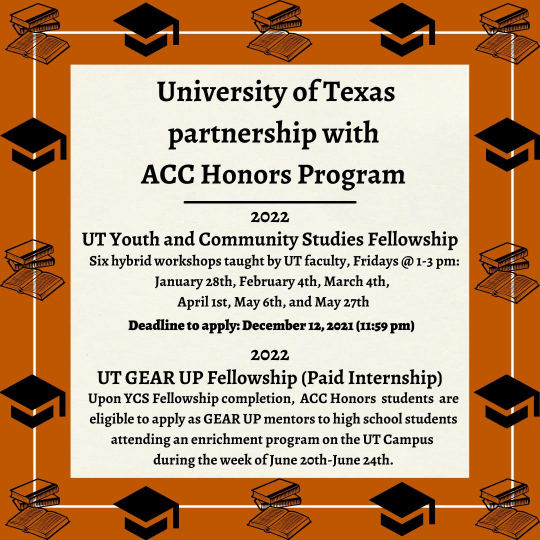
#ycsfellowship#utaustin#theuniversityoftexas#utgearup#youthandcommunitystudies#accdistrict#acchonors#accriverbats#college#collegelife#hsoblog#honorsstudentorg#student#austincommunitycollege
2 notes
·
View notes
Text
My Journey Learning German

Despite growing up in a monolingual household or perhaps because of it, I knew from a young age that I wanted to speak more than just English. To this day, I find myself in awe of the multilingual who, seemingly by magic, wanders in and out of different tongues as if scanning the radio. What new worlds are conveyed on those frequencies, what cultures? As soon as I could hold a pencil upright, I was spending my youth forever inventing new alphabets and my own infinitive phrases; yet it took me nearly two decades to not already abandon my linguistic passions by dinnertime.
I picked up German 11 years ago while failing out of college at 20 years old. Although I had never stopped being fascinated with communication (at that time I was a music major—music is its own language after all), I had indeed stopped attending class. I didn’t know it then, but I was in the throes of a Major Life Transition: caught between childhood doubt and adulthood self-discovery, I began to challenge what I thought I was capable of and, in particular, what language meant to me.
I was a college dropout with no plan when I purchased “Rosetta Stone: German” on a whim...
Now, I promise I’m not advertising for a product when I say that Rosetta Stone’s lessons immediately made me feel like a kid again. This was back before we had a plethora of convenient (and in some cases, free) alternatives like Duo Lingo on our smartphones. In any case, Rosetta Stone was immersive and I liked that. Pretty soon, I had developed a plan for learning each and every day—that last part being the most important:
1. Every day, I completed about an hour’s worth of lessons in the program.
2. Afterwards, I went back and wrote each sentence I had encountered in the program into a notebook.
3. Since Rosetta Stone is immersive and doesn’t (or didn’t when I used it at least) explain grammar, I augmented my understanding of the sentences in my notebook with reputable websites on grammar (such as https://yourdailygerman.com/ and https://learngerman.dw.com/en/grammar).
"I was a college dropout with no plan when I purchased “Rosetta Stone: German” on a whim..."
I did the above 3 steps each and every day until I had completed the entire program. While I was still nowhere near fluent, I was most definitely hooked. Using the same method I had developed with Rosetta Stone, I soon devoured other popular software including the Living Language and Pimsleur series, about 100 ephemeral apps and videos, and later, Duo Lingo. Within two years, I was conversational... but it still wasn’t enough.
I doubled down: I decided it was time to practice speaking with someone. Via an online search, I quickly found a German tutor, a native speaker, with whom I would meet as much as my humble bank account would allow (which meant about two hours of lessons per week). The progress was slow and often grueling, but over the following year, my skills vastly improved. I had just started to feel somewhat comfortable in the language as a daring thought came to mind: What if I looked for a German-speaking position? As I was still in between odd jobs, I figured it couldn’t hurt.
To my surprise, I quickly secured an interview for a German-speaking customer support role with a promising startup. Although my German initially wasn't developed enough for the position, they offered me an English-speaking role as well as one of the best proposals I’ve ever received: a desk near the German Team so I could practice with them. 6 months later, after daily practice speaking German with my new friends, I was promoted to the German Team, full time. Suddenly, the 8-hour workday had become my childhood dream. While my sentences weren't always perfect, I was now a fluent German speaker. This journey still remains one of my greatest accomplishments.
"... a daring thought came to mind: What if I looked for a German-speaking position? As I was still in between odd jobs, I figured it couldn’t hurt."
And yet life moves us in unexpected directions...
Serendipitously, my path eventually led me back into the classroom where I now pursue my Ph.D. in German and Linguistics. I hope someday to teach.
Still, I often miss the daily interaction with my coworkers and the amazing world of our shared language in the office. As a student, I find that dedicated “language time” doesn’t always make the daily cut on my to-do list. But it doesn't matter. Life is a creative process and language is always around us. Now, as I work part-time delivering food across town, I simply put on my German audiobooks and enjoy the pleasure of practice—a world to dive into.
In college, communication is key, both in language and in learning. In whatever world you find yourself, there are always new connections to be made.

-Aaron Turner, HSO Social Media Team Lead
#language learning#communication#german language#student#college#learning#learningtips#austincommunitycollege#acchonors#accdistrict#accriverbats#hso#hsoblog#honorsstudentorganization#honorsstudentorg
2 notes
·
View notes
Text
Study Tips from the HSO
It's that time again, fellow Riverbats and friends. You know the one: the weather is changing, the leaves are falling, and midterms are calling... 🎃🍁📝 Stirred by the crisp autumn air of a new season, the HSO Leadership Team is happy to share its personal study habits and insights! 📖📚
We hope you'll enjoy exploring these unique approaches toward learning and success. We'd love to hear your own. ✌

Jana McCarthy, Director of Advising
My study routine is based on years of tweaking and learning what works for me and what doesn't. I found my study style and early routine with the help of an Academic Coach, which is a resource I recommend for ALL students, but especially Honors students.
I start with my readings. I read and annotate in a heading-to-heading format. I start with the top-level heading, read the info, highlighting main ideas and things to note along the way. Upon reaching the next heading (sub level or any heading), I pause, and concisely note the highlights I made in that section - usually in a doc or in a spiral. At the end of the chapter, I have then made an outline of what I felt was important, which serves as a reference moving forward.
If there are lectures or videos to watch, or assignments to complete - that comes next. I put the notes in the same doc or just after the reading notes, so that it's all in one spot. Importantly, I use symbols and notations to ensure that I can easily locate specific items that I may need again.
I usually study in 1-hour blocks, with a 15 minute, mindless, break in-between. Mindless means that I'm doing something that won't override the material I'm trying to absorb: walk the dog, do the dishes, take a catnap - avoiding mental stimulation that will distract me from encoding the new material. The time I spend works for me, but others need more or less time studying or breaking. Find what works for you.
Finally, I always work on the material asap after a lecture or class meeting. Google: The Forgetting Curve, to learn why.
Mars Medina, HSO President
Studying for me is definitely challenging (wooo ADHD!) but I’ve found some ways to circumvent that.
Overall, first things first: I turn my phone over and put it out of sight! That is definitely my biggest distraction. Next, I make a list for the assignments or projects I need to work on/complete for either the day or for the rest of the week if I somehow have little to work on.
Working with different studying techniques, especially the Pomodoro technique, has worked well for assignment-heavy weeks. For notes I try to write them down by hand, as I found that writing it down instead of typing it usually results in me retaining the information easier. I’ve also found that index cards (for things like memorizing quotes or definitions) are a huge help.
Music helps me out too, to kind of drown out the rest of my environment; hilariously enough, I usually study to metal music but lo-fi is my second go to! My biggest advice for studying, however, is this: make sure to take breaks!
Aaron Turner, HSO Social Media Team Lead
I'm pretty flexible when it comes to studying. Since each course is unique, I structure my approach in a "flowchart" sorta way (something I didn't know until I actually wrote it out here, lol).
First, I read each syllabus and compile all due dates from all courses into a single calendar. For each course, I then:
1. Get info on tests (Note: If there are no tests, I skip to Step 2)
1.a. Will test questions come from multiple sources or a single source?
If the professor confirms only one source (i.e. from lectures), I double down and study from just that source. That said, I always follow the professor’s lead.
1.b. If I'm studying from a textbook: I try to read ahead of the lectures; I highlight key concepts and say/write out my own explanations; I conduct multiple reviews leading up to the test.
1.c. If I'm studying from lectures: When attending the initial lecture, I listen to get acquainted and usually take few notes; I rewatch the recording and write down key concepts and info; I conduct multiple reviews.
2. For reading, writing, and researching (i.e. for a paper, presentation, homework, etc.)
2.a. I start EARLY and do a little every day.
For research, I use the ACC Library and other reputable websites; I highlight and save passages; I take notes while reading or watching videos; I keep track of my sources.
2.b. I ask questions; I go to office hours and seek tutoring when needed.
Amber Traylor, HSO Treasurer
Like many students, I can struggle to manage my time when trying to study or complete homework. What I’ve found works for me is a combination of two strategies:
1. I maintain an accurate calendar reflecting when assignments are due, when exams are, and what other activities I have planned on certain days. This helps to remind me what needs to be done on a given day and allows me to focus based on the order of importance, this is often called the Covey technique and involves ranking things from urgent, to not urgent, to not important.
2. I also use a variation of the Pomodoro technique when studying or doing work. I often find that around the 1-hour mark of working, my brain starts to lose focus and I seek out distractions. To maintain my productivity, I work straight through for 45 minutes and then take a 10-to-15-minute break. By breaking up my work, I can stay on task for several hours at a time. I also alternate my types of work between sessions; I may start on math, then rotate to science, and then switch to English before going back to math.
At the end of the day, you must make studying a priority while in college. Develop techniques that work best for you but look over these ideas to see if you like them!
Here's to a great 2nd half of the semester! 😎 👍
Visit the Academic Coaching Team's Online Study Resources for additional tips (+materials and study guides).
Happy Studying and Succeeding,
the HSO Leadership Team
#hsoblog#study#studying#studytips#studyskills#acchonors#accdistrict#accriverbats#success#studyresources#honorsstudents#hso#honorsstudentorg#austincommunitycollege#college#collegelife
2 notes
·
View notes
Text
'Where' Not 'When': The Power of Showing Up
There are times when it’s hard to show up.
Story 1: At 23, I dropped out of college, never to return. But despite the sort of abruptness insinuated by the words “dropped out,” the reality of it had in fact been a long time coming. Somewhere starting in my teens, I had gradually begun to lose my self-confidence as a student until there was hardly any left with which to enroll. Once I got to college, I felt doomed to press on "just because"... until I stopped "pressing on" (attending) and failed out.
Story 2: 7 years later, on an early morning in June of 2020, I opened my laptop to a sea of faces dotting the flat boxes of Zoom. One by one, across each countenance, I quickly discovered my own expression of uncertainty. An expression that said, “I’m still wearing pajamas at the kitchen table, and the world is on fire.” I was 30 and attending my first History class in 10 years, during a pandemic. I didn’t know it yet, but I had already succeeded.
So, what's happening with these anecdotes?
The best advice I’ve ever been given is to “show up.” Of course, we can’t attend everything in life—we have to choose. In my late teens and early twenties, by a mix of self-doubt and youthful abandon, I made choices that didn’t serve me. I chose writing songs over essays and watching movies over lectures. Such were the choices that eventually led to me dropping out of college. Still, it would be a disservice to label them as “wrong.”
When people speak of “showing up,” they mean that it’s important to devote one’s time wisely. Wherever you go, there you are; and that’s not just a book title on meditation (good stuff btw), it’s the literal truth. Life is a series of constantly showing up—there’s no hiding. What matters is knowing where to show up... 'where', not 'when.'
Dropping out of college at 23 didn’t ruin my life, but it did delay parts of it. Once I realized where I wanted to be, I simply started making appearances there. I returned to college at 30 because I had learned my surroundings. While I continue to be proud of this roadmap in my mind, one I didn't have in my youth, I remain aware that there is no arriving: our triumphs are not destinations but just the beginnings of more beginnings.
In my time both within and without the classroom, I've learned that truly knowing where I am is what leads to community, to connection. When we feel discouraged, it's showing up that pulls us out.
I'm grateful to be here.
-Aaron Turner, HSO Social Media Team Lead
#student#college#austincommunitycollege#acchonors#accdistrict#accriverbats#hso#hsoblog#honorsstudentorganization#honorsstudentorg#motivation#success
0 notes
Text
What Does it Mean to be an Honors Scholar?
Along with many other ACC students this semester, I received an email announcing the start of the Honors Scholar tier and began to panic about making sure I met all the requirements. As silly as it sounds, the GPA is the easy part. Anytime you think of the Honors Program, a high GPA is a given, but what about the other parts? I knew I needed to get the endorsement on my diploma, and like every other student, I wanted to be eligible to apply for the Honors Scholar Scholarship.
The first requirement seems easy enough in theory, complete nine hours of Honors course credit. As someone that has taken and completed two honors courses, it’s not quite that simple. Honors courses are amazing, I love the close-knit Honors community in the classes and the individual attention from the professors, but make no mistake, these classes are a challenge. You will be doing a lot of reading, writing, and studying to make it through the semester. I’m not trying to dissuade anyone from doing, you absolutely should. However, don’t just take any Honors course simply because it is an Honors course, choose something you’ll enjoy dedicating time to.
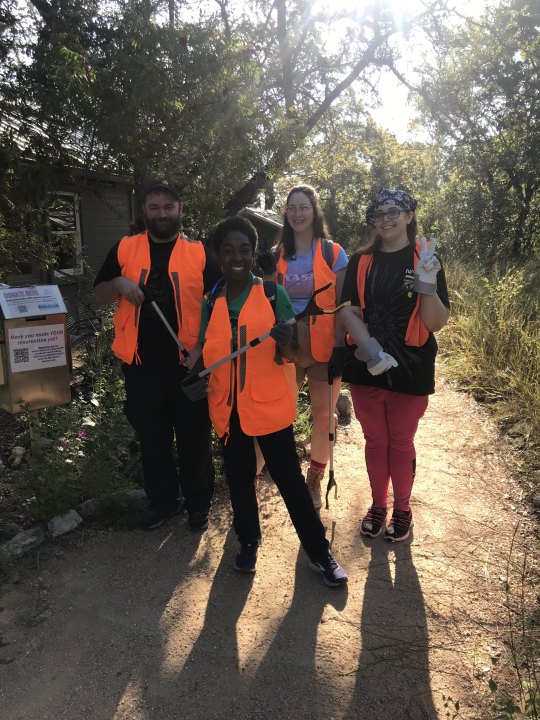
The leadership requirement was probably the most intimidating aspect of the Honors Scholar requirements. Although I enjoy being involved in my academic community, I had never tried to lead. Luckily enough, I had been offered the opportunity of serving as interim Treasurer of the Honors Student Organization for the Fall 2021 semester. It was and has been scary! There are a lot of added responsibilities when you take on an officer position of a student organization. However, it has been extremely rewarding. If you ever have the opportunity, then you should go for it. I have learned so much from my fellow officers and from the members of our organization. Plus, it has been so much fun getting to know people and creating experiences for our members.
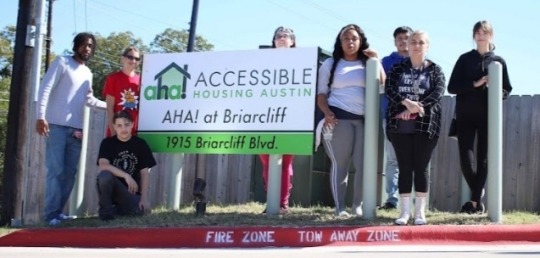
Probably the easiest and most fun part of the Honors Scholar tier is volunteering. I absolutely adore getting involved and helping my community, so this was a no-brainer. This semester I have worked with so many amazing organizations: Accessible Housing Austin, Central Texas Food Bank, Wild Basin, Zilker Botanical Gardens, and Prison Abolition Prisoner Support. Obviously, you must work with ACC non-profit partners to earn your 12 hours of service, but the Honors Program makes it easy. One click and you’re taken to a list of everyone you can worth through to get hours and it is truly rewarding to get involved.
If you’re on the fence about becoming an Honors Scholar, I say you should go out and do it. You’ll love the experience and it’ll only help you throughout your educational and career journeys. If you ever have doubts, feel free to reach out!
-Amber Traylor, HSO Treasurer
#student#college#austincommunitycollege#acchonors#accdistrict#accriverbats#hso#hsoblog#honorsstudentorganization#honorsstudentorg#community#honorsscholar#honorsscholarship#teamwork#service
0 notes
Text
Welcome & Introduction: HSO Vice President
Hello everyone!
My name is Oliver (he/they). I am the new Vice President of the HSO. I am also a current student at Austin Community College, working towards acquiring a degree in Biology (with a minor in Chemistry). I am a member of ACC’s Alpha Gamma Phi chapter of Phi Theta Kappa and the Five Star Competitive Edge committee chair. I have been a paramedic for about five years, and I currently work for the city of Austin. I have a thirteen-year-old German Shepherd mix named Maxx, and we live together here in Austin, where both of us were born and raised. After feeling frustrated at my limited ability to help people with my current licensure as a paramedic, I decided to return to ACC. I have a powerful drive and passion for equity and the elimination of barriers to accessing medical care. It is my dream to further my education to better work towards eradicating the obstacles that prevent people from receiving compassionate and respectful medical care. This same passion carries over to my school work, which has led me to my positions within the HSO and PTK groups.
I am very excited to join the team and to have the opportunity to meet and work with you all. Thank you for electing me to represent you in this position. I will do everything in my power to make sure you all feel your voices are heard and that the HSO is meeting your needs and expectations.
-Oliver Kipp, HSO Vice President
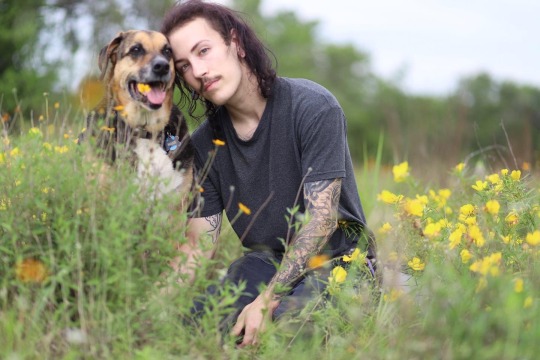
0 notes
Text
Information Session: Honors at ACC
Hey everybody! Mars here. In case anyone missed these fun information panels that the Honors Ambassadors held for the Honors Program, allow me to help you out and explain some key points about ACC’s Honors Program!
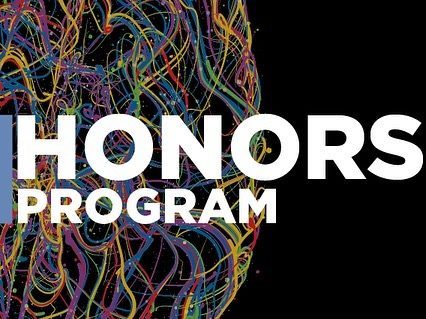
First things first, we are not Phi Theta Kappa. I repeat: we are not PTK. I think that’s the biggest question we in the Honors Program get from inquiring students. The Honors Program functions as a set of courses for students to take in place of their core curriculum (these will reflect on your college transcript by the way! So universities know you’ve taken Honors courses), while PTK functions more as an Honors society (that is recognized across the country! Most transfer applications will ask if a student is a PTK member.) What sets Honors classes apart from non-Honors classes is one, the class size. Honors classes have only fifteen seats per class; this way, it’ll allow professors to hone in on each and every student in the class and really get to know everyone throughout the semester. Another distinction is the subject material. While it still covers the same material, Honors classes allow for professors to focus on one specific subject in correspondence with the course. For example, the Honors Program offers many English Composition classes - but one class will focus on Magical Realism, while another focuses on Science Fiction. These classes are submitted by professors, so once you start a class, you know you’ll be learning the material from a professor that is heavily invested in what they’re teaching. Another question the Honors Program gets is this: does it cost anything to get in? Do classes in the Honors Program cost more than non-Honors classes? And the answer is no! There are no extra fees associated with both getting accepted into the Honors Program or registering for Honors classes. There are some requirements to getting accepted into the Honors Program, you can find those here. Besides the classes I’ve mentioned above, another great benefit for joining the Honors Program is all the wonderful opportunities that the program offers. They are:
Service & Transfer opportunities
Honors Advising
YCS Fellows: offered in the spring, in collaboration with UT Austin, select Honors students will attend free workshops with professors from UT’s College of Education to expand their knowledge in youth and community studies. Once completing the program, YCS Fellows will also be offered a chance to participate in the UT GEAR UP internship during the following summer
UT GEAR UP internship: if selected, Fellows will be able to showcase what they’ve learned and spend a week helping UT professors teach exciting subjects to students! (Did I mention that it’s a paid internship? 👀)
Honors Scholar Tier: newly implemented, this tier reflects a student’s willingness to enhance and expand their Honors experience; once they are a Scholar, students receive recognition on their transcripts and honor cords for graduation ceremonies
Honors Scholarship: exclusive to Honors Scholars, this scholarship is offered to a select number of students every spring to help with ACC tuition, textbooks, fees, or other education expenses
Honors Ambassadors: comprised of students, this internship will allow you to engage in student outreach and recruitment, as well as being able to work with Student Services, host events like Honors Week, create podcasts and videos, and support organizations like the HSO.
Honors Student Organization: and last but not least, students will be able to join the HSO! This organization holds a special place in my heart. I wonder why. 😉 The HSO allows Honors students to engage with their community of fellow students, attend fun events, engage in leadership opportunities, and thrive in a diverse intellectual environment.
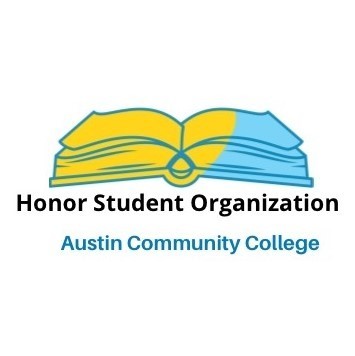
In case students have any questions, though, feel free to reach out! The Honors Program is always on the lookout for enthusiastic students and is ready to welcome any and all!
-Mars Medina, HSO President
#hsoblog#acchonors#accdistrict#accriverbats#honorsprogram#student#studentblog#austincommunitycollege#honorsstudents#hso#honorsstudentorg#college#collegelife
1 note
·
View note
Text
I Reddit and Don’t Regreddit; or, A Millennial Discovers the Internet
Late last Spring, after some footloose years without a ride of my own, I finally got a (to me) new car. With few exceptions, I hadn't driven for many years.
Aside from the paradoxical freedom one experiences when committing to a major purchase, I quickly remembered—lest I had forgotten—the weight of responsibility: Not only toward being a safe driver but also in the matter of paying one’s bills and the regular upkeep of maintenance. As a college student, the bills and maintenance part can be something of a juggling act.
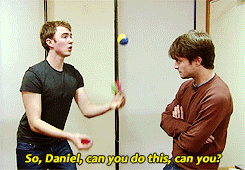
Maybe everything will just go smoothly, I thought while unironically queuing up ‘Enya’s Greatest Hits’ in my new speakers.
...Two weeks later, the clutch pedal began to squeak.
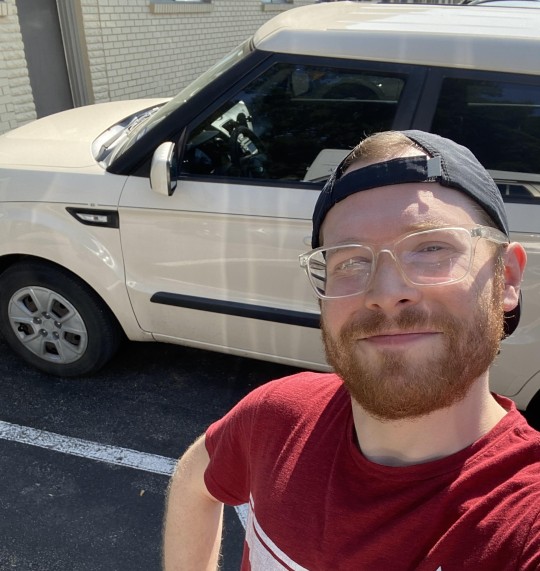
Although I was quite certain that the chirping sound emanating from my nimble footwork was truly innocuous, I still relentlessly tortured myself with images of single bolts out of place that, in a freak event of chain reaction, would somehow destabilize the delicate inner machinery holding together my little go-cart. Moreover, I considered how such a fiasco would impede or even put me out of work as a part-time delivery driver.
And then, it dawned on me: This isn't 1999, the internet exists and I, a Millennial, would use it to my advantage; even despite the intimidating online know-how of Gen Z.
Only months before had I finally gotten around to joining Reddit, “The Front Page of the Internet” so they say. I was 15 when YouTube debuted in 2005 and, even though Reddit also began that year, I wouldn’t learn of its existence until many a moon later.
Gingerly, I opened the app on my phone and took a video of my dreadfully squeaky clutch. With bated breath, I shared my video to the related subreddit and waited...
Ding!
���Give it some WD-40 and call it a day,” the message read. Based on the comment’s upvotes, the community consensus was unanimous. I thanked my Reddit savior, went to the store, and applied the magic serum of WD-40 as advised. And tah-dah! I had just "reddited" my problem away.
"This isn't 1999, the internet exists, and I, a Millennial, would use it to my advantage."
When I was in high school, we had nothing like Reddit. Sure, Google and quasi-social media were a thing (who needed friends when we had Tom from Myspace), but multifaceted communities-within-communities? Hardly.
Because the internet I knew was the one I had grown up with, it was the one I had always lived by.
Now, for anyone out there like me still trying to paste some HTML code into your Myspace profile, you might not know what makes Reddit so fantastically different from every other social media platform. For me, Reddit is like the premise of the movie The Martian. In life, we’re all just trying to figure out the best way to get home. Despite it being a network of anonymous strangers and despite all the drawbacks that anonymity can sometimes present to a community, Reddit is the most intelligent, most honest, and most helpful corner of the internet.
While I’m sure I’ll come back here again in 10 years with late insights into Discord and TikTok, I'm going to keep searching for my community. The internet has not always been our friend, but getting to be a part of what keeps us connected makes me happy.
I suppose it’s true: I reddit and don’t regreddit.
Only this ridiculous pun.
-Aaron Turner, HSO Social Media Team Lead
#old dog new tricks#austincommunitycollege#studentorganization#honorsstudentorganization#riverbats#honors#hso#hsoblog#honorsstudentorg#reddit#millennials#gen z#school#community
0 notes
Text
September: Reflection
I’m really proud of where I am in life right now.
Throughout elementary and middle school, I was often called gifted or smart. I read constantly, to the point where I wouldn’t pay attention in class. I caught on quickly to subjects and would always get good grades. To this day, I have an elementary school teacher who has taught all my younger siblings, when asked if my siblings are smarter than me, always say, “Well, Mars was really smart…” I remember in the fifth grade, when the grade was tested on reading comprehension, I was told I could read up to high school level books. In middle school, I remember getting a 100 on the TAKS reading section and getting to sleep through my English class the day we went over it. Man, remember the TAKS test?
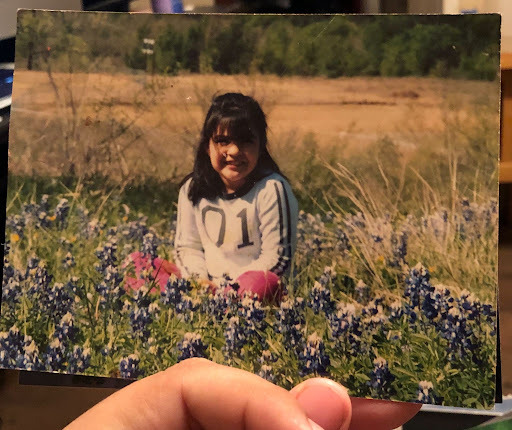
I don’t know why all this changed in high school. Actually, no, I know why.
Depression came in high school. I sometimes had trouble concentrating in class, especially during subjects that didn’t interest me, but in high school, my concentration got worse. My anxiety spiked. I stopped reading. I stopped caring. I got a C in my freshman English class, when English was my favorite subject. This went on throughout high school, and when I graduated, I was ranked right in the middle of my graduating class. When my peers started to go to college, I stayed in my hometown and joined the workforce. I gave a lot of reasons why: college was expensive, the FAFSA confused me, I had been so average in high school so I probably wouldn’t do well in college.
I went a couple of years thinking this. At age twenty-two, I started to reconnect with an old classmate, who had just come back to our hometown after dropping out of college. In December 2018, we started dating. (This comes into play later, I promise!) At age twenty-three, I got diagnosed with ADHD. It made sense, especially with my inability to concentrate. It wasn’t the ultimate solution to all my problems but things got better. There was just one thing: I had been working for five years and I felt unfulfilled. Was this really what I wanted to do for the next few years?

When I told my girlfriend and friends about this feeling, I would get the same answer: “Well, what do you want to do?” And I started to think. I really liked movies. I really liked seeing behind the scenes of movie sets, the way directors worked, how production worked. I became fascinated with camera operating. I wanted nothing to do with being in front of the camera (I’m a horrible actor!) but behind it? I could do so much behind the camera! And the more and more I researched how to become a camera operator/cinematographer, the more and more I kept seeing the same thing: most gigs/studios required a bachelor’s degree in Radio-Television-Film. When I told a friend this, they said, “Try ACC! That’s where I’m going right now.”
"I had been working for five years and I felt unfulfilled. Was this really what I wanted to do for the next few years?"
So I applied. The fear set in when I submitted my application. Would I be any good? My mom, friends, and girlfriend assured me this would not be the case. And when I got accepted to start classes in Spring of 2020, we were ecstatic. The only problem was how high the tuition was for out-of-district students. So I started thinking about moving to Austin. After all, the lease to the apartment I was sharing with friends was about to expire in 2020 so why not? When I brought this up to my girlfriend, she was all on board. She quickly transferred to a job in Austin and never let me feel like I was forcing her into going with me. My girlfriend- sorry, fiancée is my biggest cheerleader. I can’t overstate how much her support has helped me throughout this journey.

"I’m really proud of where I am in life right now."
It’s crazy to think how fast time has passed since moving to Austin, and well, COVID, but I’m right where I need to be. The support and community I’ve found here at ACC, and more specifically the Honors Program… I am forever grateful. I’m happy to report that no, I haven’t been getting average grades or just skating by, I’ve been excelling. I’m hoping that even with this crazy time in our lives, people still consider trying out higher education, even if they don’t think they can make it. You never really know unless you take that leap. I mean, I’m here, aren’t I?
-Mars Medina, HSO President
#austincommunitycollege#studentorganization#honorsstudentorganization#riverbats#honors#reflection#september#hso#hsoblog#honorsstudentorg
0 notes
Text
Back to Campus: A New Normal
For the past year and a half, every single ACC course I have taken has been online. I’d yet to set foot on a campus since starting my journey last fall. So, it was with much trepidation that I (and many other students) reentered an ACC campus on September 13th. I’d signed on for an in-person chemistry course but had been told at the start of the semester that it would be delayed if not completely relegated to online learning because of the spike in Covid cases. That was all over now though, and it was time to face the proverbial music of returning to classes.
Like any normal school day, I started off by gathering everything I would need for class: pencils, pens, highlighters, notebooks, handouts, a calculator, and a good dose of motivation to get through the day. Today though, I needed a few extra items to head to the Round Rock campus: an Appian campus pass, my ACC ID, a mask, and about a gallon of hand sanitizer. I’d also slapped a post-it note onto my phone with the building and room number for my course because, as mentioned earlier, it had been a long time since I’d been anywhere near a campus.
After arriving, I wandered aimlessly for a few minutes until I found building 2000 and headed inside. I was happily surprised to see other students milling about and interacting; it actually felt like I was going to college for the first time in a long time. Once over my shock, I headed for the elevators and made my way up to the second floor. I roamed the halls for a bit before realizing I was on the wrong floor and then made my way to the third where I located room 2312. While waiting for class to start, I bumped into a few of my classmates in the hall. These were people I knew by voice but had never met before! We chitchatted for a few minutes while waiting for our Supplemental Instructor.
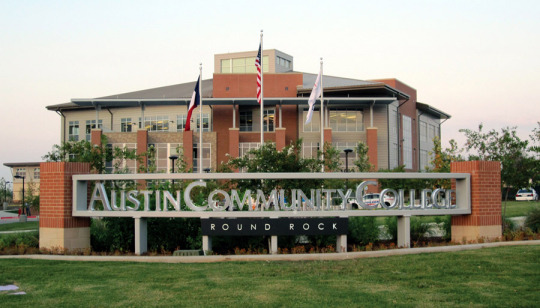
“It actually felt like I was going to college for the first time in a long time.”
Once he arrived, we all settled into our seats and got to work. It felt amazing. It was nice to be surrounded by people again and especially by people who were also there to learn. We could have actual conversations, bounce ideas off each other, and ask questions without typing them out and waiting for a response. Sure, we were all in masks, but we were there, and I finally realized that what I had been missing during the past few Covid semesters was the community part of community college.
I know that things aren’t back to normal yet and who knows when they will be, but I’m glad to be getting back to campus learning. With students respecting quarantines, wearing masks, and increased cleaning protocols, I felt safe returning to the classroom. It’s my hope that we’ll all be able to soon. Being part of a learning community is a big part of the college experience and I didn’t realize how much I was missing until getting to be a part of it.
-Amber Traylor (She/Her Pronouns)
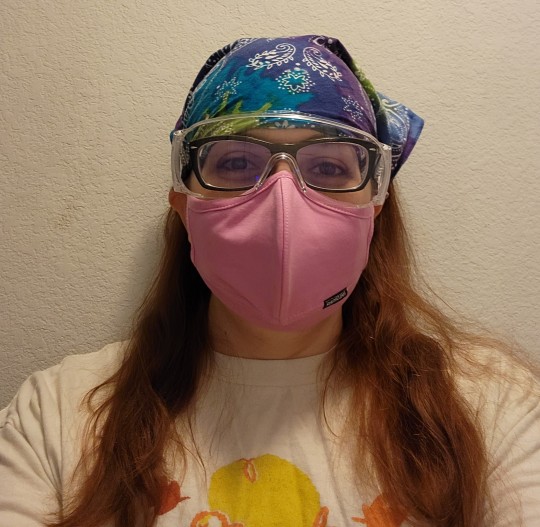
#austincommunitycollege#studentorganization#honorsstudentorganization#riverbats#honors#hso#hsoblog#honorsstudentorg#backtocampus#safety#maskup
0 notes
Text
Self-Care Awareness: A Step Back for Taking One Forward
Last spring, I enrolled for 3 courses at ACC: an art course, a language course, and a history course. It was the dawn of 2021 and the peak of the COVID winter. As it happened, it was also the peak of my own stress and frustration, seemingly with everything. Besides all the problems on the local and world stage, that semester none of my usual planning came easily to me. From the very start, it seemed like my academic and personal schedules simply would not align; not only that, but I was struggling financially.
I was also struggling with my mental health.
As a prospective and hopeful transfer student, I know the value of getting to work and making the good grades. All you need is a good calendar, consistency, and open communication to succeed, perhaps among some others. In other words, trusting yourself and taking it all one day at a time. All the good stuff that we commonly give and receive as advice.
But what happens when you don’t have a good calendar, life becomes anything but consistent, and communication is in turmoil everywhere you look?
When you find yourself emotionally and physically overwhelmed, and in a pit where effective resources seem distant.
Despite my struggles, the semester did, however, debut with one beacon of hope: The previous November I had been accepted to the UT Youth and Community Studies Program (YCS), a semester-long seminar toward education and community building. And on a Friday in February, I joined my first virtual interactive.
I was nervous and felt unprepared; I felt like a poser instead of a confident student.

Pleasantly, I soon found that the environment wasn’t so scary after all. Led by UT faculty, Drs. Wiebe and Hermosura, the YCS Program revealed itself as blend between instructor lecture and student dialogue. In that open space, I found the communication that had been lacking in my life; above all, I found community. “When were you last proud of yourself?”
The question had been asked at the outset, in a group session. Initially, I balked at wanting to reply. What did I have to be proud when I felt scattered? Particularly, what would my new friends say if I told them that, only the day before, I had dropped my history course (albeit ahead of attendance being registered) because I was overburdened?
I felt ashamed. And it was because of my own perceived shortcomings that I also felt dejected.
It wasn’t until the first person in our group shared the source of their recent pride that I discovered my own. They shared that they were proud to be taking walks outside for their mental health. This sparked something within me. It was, in fact, on the account of seeking nature that I had dropped the history course; one I had so wanted to keep on my schedule but could not.
"I was nervous and felt unprepared; I felt like a poser instead of a confident student."
After the crisis of 2020 and a dark winter, I simply knew that I needed more time to be active outside. I found in my group partner a friend, who like me was still learning to take care of themself.
And so, when it came my turn to speak, I revealed my dropped course and the fluctuating state of my mental health.
The support I received was itself overwhelming. To my relief, my friends and our instructor congratulated me on practicing self-care. I cannot adequately express how grateful I was and remain for their encouragement.
(Worth its weight in gold: Learn more about the UT Youth and Community Studies Program (YCS) via the link.)
And then in February, the devastating 2021 winter freeze hit, and Texas shut down. It was in that moment I realized how grateful I was to have listened to that little voice inside me. Even though I had taken on lighter coursework that semester, I had also given myself the space to cope through trauma. When the weather changed again, I found my healing in the outdoors. I felt alive.
My instructors and friends had lifted me up to remind me that sometimes taking a step back is taking another one forward. While it’s important to always do your best, I’ve learned it’s important to know what your best is.
As we celebrate and observe Self-Care Awareness Month, I’m proud to say that I’m still learning what self-care means to me.
-Aaron, HSO Social Media Team Lead

#austincommunitycollege#studentorganization#honorsstudentorganization#riverbats#honors#hso#hsoblog#honorsstudentorg#nationalselfcareawarenessmonth#selfcareawarenessmonth#selfcare
0 notes
Text
Returning to College as an Older Student
Hello, my name is Aaron. I am a German major, LGBTQIA+ Austinite, and the HSO Social Media Team Lead at ACC.
I am also a returning student:
Our journeys are anything but certain. At 23, I failed out of college and entered the workforce full-time. At 27, I had a stable job and a great group of friends. By 28, I was totally lost...
People say it gets harder to get your degree as you get older. When you’re young, time seems endless. As soon as you realize (with some serious profundity) that it’s not, changing course may feel impractical. Whenever I would consider resuming my studies after dropping them in my early twenties, I would think about the life I had worked to build since and would only destroy in the process. Moreover, I would think about the previous failure that I feared I might repeat. But as I neared 30, something began to change inside me. I began to question the notion that I was educationally “destined” for defeat.
The notion came as insight not long after a sizeable promotion at work. Despite my long-standing academic hiatus, I had nonetheless continued to pursue various hobbies, among them that of teaching myself German. Eventually, my proficiency in the language improved to the point where I was offered a full-time job on an international customer support team as a German-speaking agent. And for the first time, I was doing something that I was truly passionate about! In that time, I developed many skills—above all those in project management, relationship building, and organization.
With a flame kindled by progress, I also felt a strong need to translate every word I came into contact with, to continually improve in my chosen foreign language, to speak with as many people as I could, and to learn everything possible about other cultures.
And at 28, together with my partner, that's what we did: we traveled.

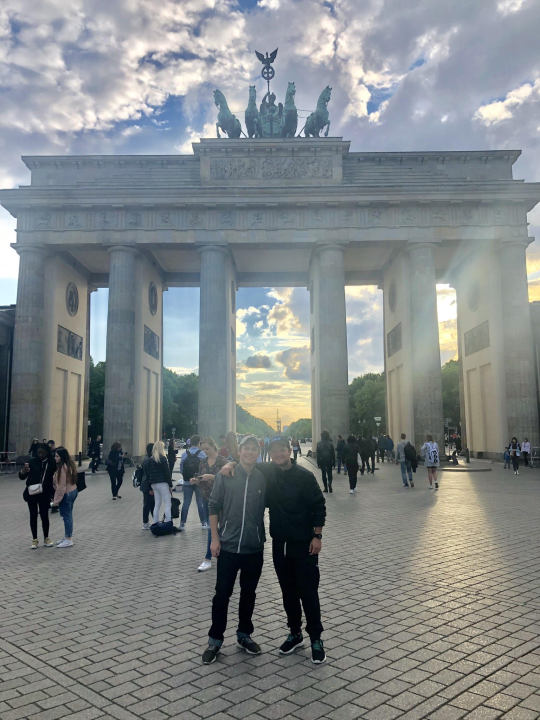
We returned within a year.
While our cultural exchanges across Asia, Oceania, and Europe had indeed been transformative, we came home broke and exhausted. Still, I promised myself that, whatever happened, travel was the gateway to a new start. Coming home meant that I would no longer chase the whimsies of my youth, nor a job in an office. And yet I needed a paycheck.
Instead of jumping back into school, as I had sworn that I would, I delayed re-enrollment. I just need to save back some of the money I spent overseas, then I'll enroll, I thought.
Wait a little longer. A better window will open. Right?
Two months later, in March 2020, I watched that proverbial window close as the world was thrust into free-fall. In the face of a debilitating pandemic and lockdown, the perfect moment to segue back into the classroom eluded me. Desperately, I tried to hold myself together by working part-time jobs, delaying moving forward with college until life was "back to normal." (I even tried convincing myself that I would be happy going back to full-time customer support.)
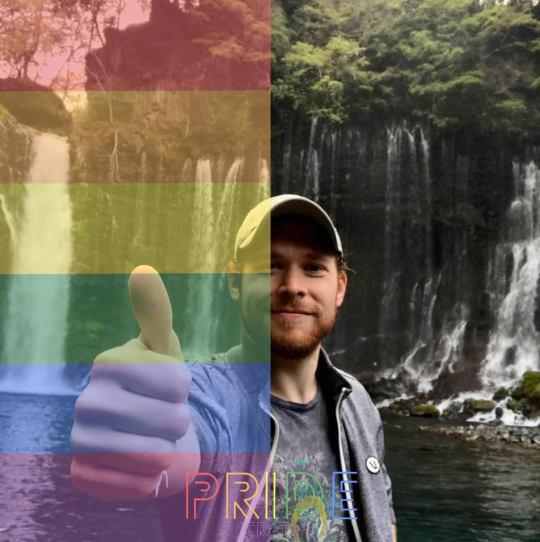
Despite my best efforts to restart my life, everything had gone terribly wrong. And as the summer of 2020 approached, I fell into despair. One after the other, every invite I had received for a job interview canceled due to widespread layoffs and hiring freezes. Sitting alone one day at home, I realized that we sometimes wait on an answer we already have...
In June 2020, in the wake of necessary and motivating social change, a public health crisis, and despite my own aimless meandering, I decided to get active, get re-educated, and get connected; nervously, I enrolled as a German major at Austin Community College.
Today, against all the fear and uncertainty in my own life and in the world, I find hope in learning anew and in the stories of old. I believe it is the ones we tell, to ourselves and to others, that become the building blocks of a community. My mistakes, including my initial failures, are now the experiences from which I draw strength.
Indeed, we are made for times like these—to stand for what is right and to get busy in its defense. There is no “good time” to do anything because, even when we fail, we move forward together.
This is the time that counts because this is our story.
Returning is as good a place to begin.
-Aaron Turner, HSO Social Media Team Lead
#community#austincommunitycollege#student#overcome#onedayatatime#embracethejourney#studentorganization#honorsstudentorganization#riverbats#honors#hso#hsoblog#honorsstudentorg#selfcareawarenessmonth#learning from mistakes
0 notes
Text
Getting to Know: the HSO
Dear Riverbat friends, faculty, and Honors students,
Welcome (for our part) to the Fall 2021 semester at ACC!
This week—albeit much like any week in the flow of life—is the start of something new. In addition to whatever that “something” means to us individually, together we are a community venturing into POSSIBILITY. On this note, we are especially excited to be returning alongside you to more on-campus learning this semester!
For any challenges before us, be they personal, academic, local, or in the world at large, the Honors Student Organization is, above all, an organization committed to community.
Without further ado, we are pleased to introduce the HSO Officers for the 2021/2022 academic year. This is who we are:
Mars Medina, HSO President
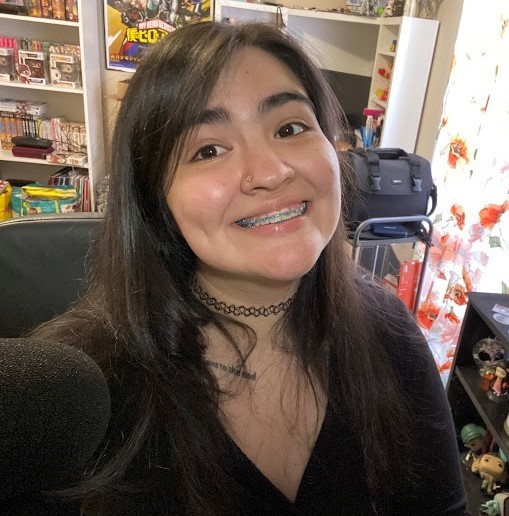
"Hello! My name is Mars (they/them) and I serve as the HSO President, an Honors Ambassador, and a student here at ACC as a Radio-Television-Film major! Seeing that I’m an RTF major, of course my interests involve watching movies and thinking too much about them. When I’m not watching something, you’ll most likely catch me either playing a video game, reading, or trying to come up with a good D&D campaign. Lately, I’ve been trying to play Dark Souls (there’s a metaphor in there I think). The way I was made aware of the Honors Program was actually through my freshman class; an upperclassman got me interested when he mentioned a Taco Bowl and the idea of having smaller classes with specific topics. Sure, I never got to go to the Famous Taco Bowl (thanks COVID) but through the program, I was able to apply to the Honors Ambassadors and then eventually - the HSO. It’s through the Honors Program that I was able to really appreciate my education and expand my mind in ways I didn’t think I would be able to in college."
Shentel Ojeda, HSO Secretary
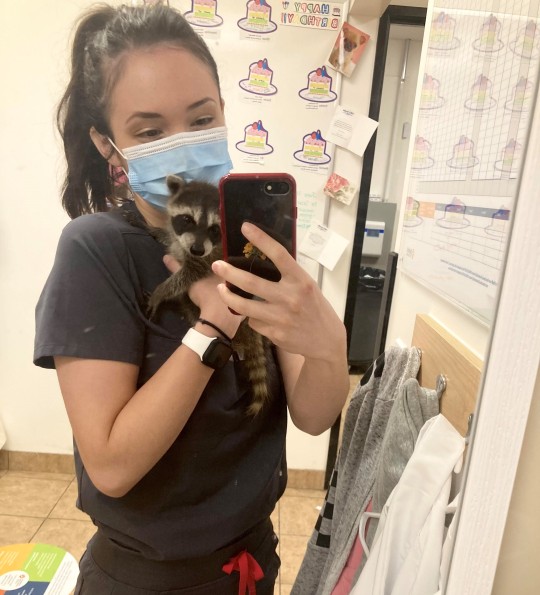
"Hi, my name’s Shentel. I’m a part-time student at ACC and this year’s Secretary of the Honors Student Organization! I’m a psychology major looking to pursue a career change from veterinary medicine into human medicine. I’m also currently a nurse in a general small animal practice in Cedar Park. I’ve always been extremely detail-oriented and felt it’d be an amazing opportunity to get involved with a student organization whose goal is to help other students reach their fullest potential! As a non-traditional, first-generation college student, full-time worker, and mother of one, I felt it was important to become a part of Student Life at ACC; particularly, in a way that would encourage more students like myself to get out there and take control of the many opportunities that ACC has to offer. In my free time, I enjoy writing fiction novels, movie nights with my best friends, and spending time with my family. I also have a cat and two guinea pigs whom I completely adore and who keep me very busy! I look forward to a fun and busy school year with the new officer team and can’t wait to collaborate on making the HSO an enriching experience for everyone to take part in."
Aaron Turner, HSO Social Media Team Lead
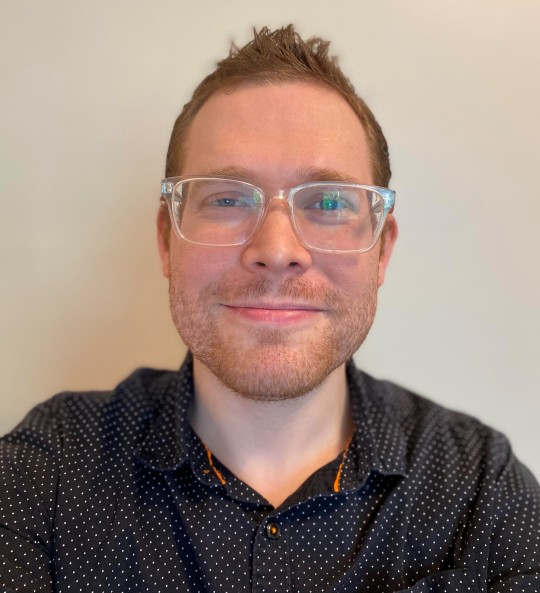
"Greetings, social friends! When I stopped attending class and failed out of college about 10 years ago, I never would have imagined myself as a future Honors student, let alone the HSO Social Media Team Lead (a new role for the HSO, by the way). After dropping out, I later came to realize that those "bad-grade days" of yesteryear were just a symptom of the false beliefs I had held about myself, mixed in with a dash of rambunctious soul-searching. Around the same time, I started learning German as a hobby before practicing it literally every day for several years. Eventually, I got fluent enough to be hired as a German-speaking customer support agent; it was truly a life-changing experience that ultimately brought me back into the classroom, last year; next year, I hope to transfer to UT with an Associate's degree in German. My term with the HSO will cover (at least) the first half of the academic year, during which I hope to support our Honors and student community with engaging content, online resources, open dialogue, event info, and much much more!, including a few laughs along the way."
Amber Traylor, HSO Treasurer

"Hello everyone! I will be serving as the interim and hopefully full-term Treasurer for the HSO this school year. I’m studying full-time at ACC as a chemistry major with the goal of transferring into a biochemistry program by 2023. I’m passionate about science, both what it can do and what it means for the future of humanity. If you’re looking for a nerd, you’ve found one. Outside of school, you’ll usually find me playing video games, reading, or binging on Netflix. If you’re ever in need of a shoulder to lean on, feel free to reach out to me. I’m looking forward to working with the HSO this year to grow our community and provide enriching and fun experiences for everyone. As treasurer, it’s my goal to provide the funding to make the HSO the best student organization at ACC."
We look forward to seeing you around. :)
-the HSO officer team
#austincommunitycollege#studentorganization#honorsstudentorganization#riverbats#honors#hso#hsoblog#honorsstudentorg#leadership
0 notes